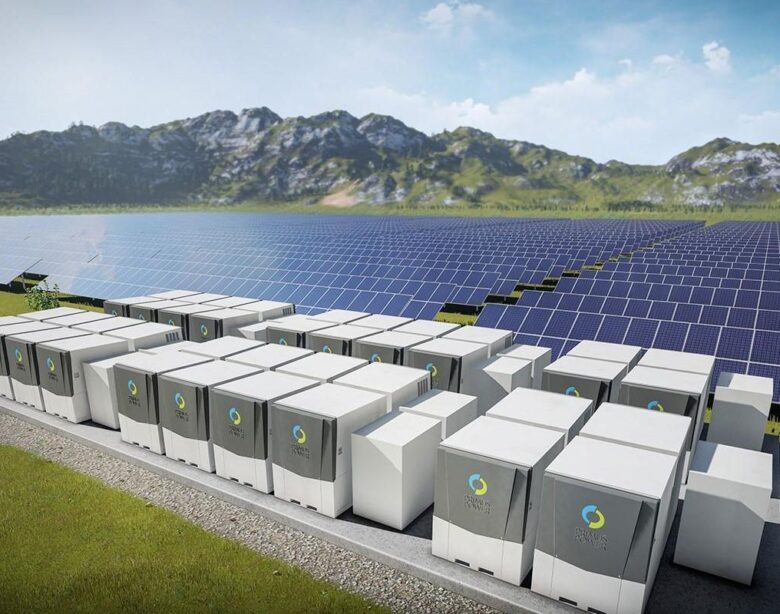Table of Contents
In today’s fast-paced world, the growing concern for environmental sustainability has prompted a significant shift towards renewable energy sources. Among these sources, solar energy stands out as a promising solution to meet our power needs while reducing carbon emissions. As the adoption of solar panels continues to rise, the importance of solar battery storage becomes evident. This article delves into the concept of solar battery storage and its pivotal role in shaping the future of clean energy.
1. What is Solar Battery Storage?
Solar battery storage is a revolutionary technology that allows homeowners and businesses to store excess energy generated by their solar panels. Traditionally, solar systems were connected directly to the grid, and any surplus energy would be sent back to the utility company. However, with solar battery storage, the surplus energy can be stored for later use, ensuring a continuous power supply even during cloudy days or at night when solar panels are not actively generating electricity.
2. How Solar Battery Storage Works
Solar battery storage systems work on a simple principle of storing energy in rechargeable batteries. When solar panels produce more electricity than is currently required, the excess energy is diverted to charge the batteries. This stored energy can then be utilized during periods of low solar production or during power outages.
3. Advantages of Solar Battery Storage
Energy Independence: By storing surplus energy, homeowners and businesses reduce their reliance on the grid and become more self-sufficient in meeting their energy needs.
Cost Savings: Solar battery storage allows users to take advantage of lower electricity rates during off-peak hours, saving money on their utility bills.
Environmental Benefits: Utilizing stored solar energy reduces the need for conventional fossil fuels, resulting in a significant reduction in greenhouse gas emissions.
4. Types of Solar Batteries
– Lithium-ion Batteries
Lithium-ion batteries are the most commonly used type of solar batteries. They offer high energy density, longer lifespans, and fast-charging capabilities.
– Lead-Acid Batteries
Lead-acid batteries are a more traditional option and are commonly used in off-grid solar systems. They are cost-effective but have a shorter lifespan compared to lithium-ion batteries.
– Flow Batteries
Flow batteries use liquid electrolytes to store energy, allowing for scalability and longer storage durations.
– Sodium-Sulfur Batteries
Sodium-sulfur batteries are known for their high energy density and efficiency, making them suitable for large-scale energy storage applications.
– Solid-State Batteries
Solid-state batteries are an emerging technology that promises higher safety and energy efficiency.
5. Choosing the Right Solar Battery System
When selecting a solar battery storage system, several factors need to be considered:
– Energy Requirements
Analyzing the energy consumption patterns of a household or business is crucial in determining the appropriate battery capacity.
– Cost and Budgeting
The cost of solar battery storage varies based on battery type, capacity, and brand. Setting a budget beforehand helps narrow down options.
– Available Space
The physical space available for battery installation should be evaluated to choose a system that fits comfortably.
– Efficiency and Lifespan
Comparing the efficiency and lifespan of different battery options helps make an informed decision.
– Integration with Solar Panels
Compatibility between the solar panels and battery system is essential for seamless integration.
6. Factors to Consider Before Installing Solar Battery Storage
Before installing solar battery storage, here are some important considerations:
– DIY vs. Professional Installation
While some may opt for DIY installation, it is recommended to hire professionals to ensure a safe and efficient setup.
– Safety Measures
Battery systems require proper safety precautions to prevent accidents and malfunctions.
7. Installing a Solar Battery Storage System
The installation process involves:
– DIY vs. Professional Installation
While some may opt for DIY installation, it is recommended to hire professionals to ensure a safe and efficient setup.
– Safety Measures
Battery systems require proper safety precautions to prevent accidents and malfunctions.
8. Maximizing the Benefits of Solar Battery Storage
– Time-of-Use Optimization
By using stored energy during peak hours, users can avoid higher electricity rates, maximizing cost savings.
– Emergency Backup Power
Solar battery storage provides a reliable backup power source during grid outages.
– Grid Independence
Storing solar energy fosters independence from the grid, enhancing energy security.
9. The Future of Solar Battery Storage
Solar battery storage is continuously evolving, and its future looks promising:
– Technological Advancements
Ongoing research and development are driving advancements in battery technology, resulting in more efficient and affordable solutions.
– Affordability and Accessibility
As the technology matures, the cost of solar battery storage is expected to decrease, making it more accessible to a wider audience.
– Impact on the Energy Sector
The widespread adoption of solar battery storage is expected to disrupt the traditional energy sector, leading to a more decentralized and sustainable energy landscape.
10. Overcoming Challenges in Solar Battery Storage Implementation
Despite its numerous benefits, solar battery storage faces some challenges:
– Energy Storage Density
Improving the energy storage density of batteries will enhance their capacity and usability.
– Environmental Impact
Efforts are being made to address the environmental impact of battery production and disposal.
11. Solar Battery Storage in Remote Areas
Solar battery storage plays a vital role in providing reliable electricity to remote and off-grid areas.
12. Case Studies: Successful Solar Battery Storage Projects
Examining successful projects can provide insights into effective implementation and benefits.
13. Government Incentives and Support for Solar Battery Storage
Various governments and organizations offer incentives and support to promote the adoption of solar battery storage.
Solar battery storage is a game-changer in the world of renewable energy. It empowers individuals and businesses to harness the full potential of solar power, reduce their environmental footprint, and gain energy independence. As technology advances and costs decrease, solar battery storage will play a pivotal role in transforming the global energy landscape, bringing us closer to a sustainable and cleaner future.
Can I install a solar battery storage system if I already have solar panels?
Absolutely! If you already have solar panels installed, you can easily integrate a solar battery storage system. It’s a smart and sustainable choice that allows you to store excess energy and use it whenever needed, providing greater control over your electricity consumption.
How much money can I save with solar battery storage?
The amount of money you can save with solar battery storage depends on several factors. These include your energy consumption patterns, the capacity of the battery system, and the utility rates in your area. However, it’s important to note that solar battery storage can lead to significant cost savings in the long run, as it enables you to utilize stored energy during peak hours when electricity rates are higher.
Are solar batteries environmentally friendly?
Yes, most solar batteries are designed with the environment in mind. They are made using eco-friendly materials and contribute to reducing greenhouse gas emissions. By storing solar energy and using it as a clean alternative to conventional fossil fuels, solar batteries play a crucial role in promoting sustainability and combating climate change.
Can solar battery storage be used off-grid?
Absolutely! One of the key advantages of solar battery storage is its ability to be used off-grid. In areas where access to the main electrical grid is limited or non-existent, solar battery storage provides a reliable and sustainable solution. It allows homeowners and businesses to generate and store their own electricity, providing energy independence and resilience during power outages.
How long do solar batteries last?
The lifespan of solar batteries can vary depending on the type of battery and its usage. On average, most solar batteries last between 5 to 15 years. Regular maintenance and proper usage can extend their life. It’s essential to choose high-quality batteries and follow the manufacturer’s guidelines to ensure optimal performance and longevity.




